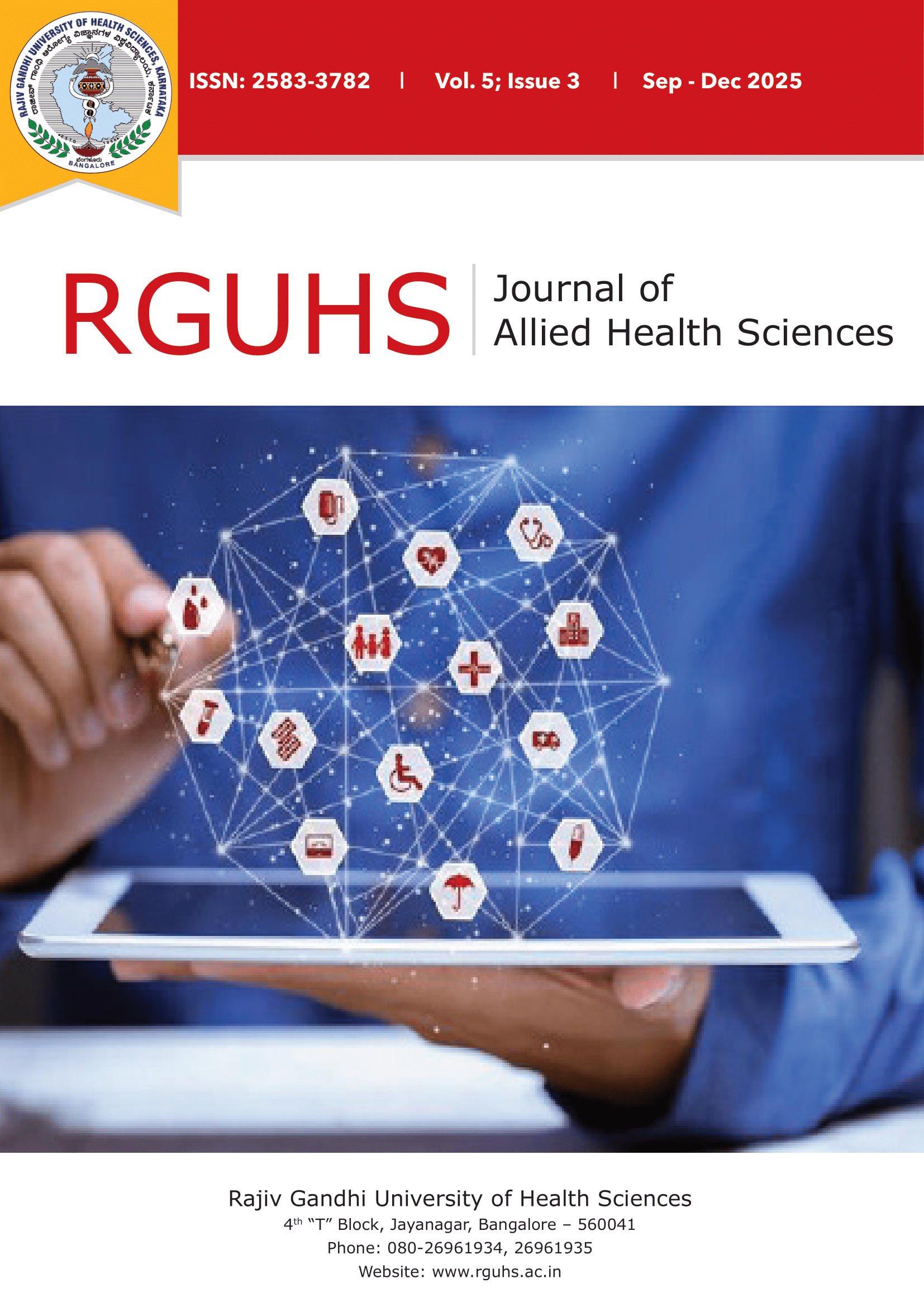
Vol No: 5 Issue No: 3 eISSN:
Dear Authors,
We invite you to watch this comprehensive video guide on the process of submitting your article online. This video will provide you with step-by-step instructions to ensure a smooth and successful submission.
Thank you for your attention and cooperation.
1Dr. Archana Bhat, Editor-in-Chief, RJAHS, Associate Professor of Pathology, Father Muller Medical College, Mangalore, Karnataka, India

Abstract
None
Keywords
Downloads
-
1FullTextPDF
Article
In simple words, self-directed learning is a process in which a student learns new things on his own. The best-known definition of self-directed learning is the one given by Sir Malcolm Knowles way back in 1975. According to it, self-directed learning is a process in which individuals (students) take the initiative, with or without the help of others (teachers), in diagnosing their learning needs, formulating their learning goals, identifying resources for learning, choosing and implementing appropriate learning strategies, and evaluating learning outcomes.
The term self-directed learning encompasses three main components – the learner, the teacher, and the learning process. I will mainly focus on the learner, i.e. the student. As described by Sir Knowles, self-directed learners have some set of characteristics as mentioned below:
1. They have clarity about their goals.
2. They plan their learning process to match their goals.
3. They keep a check on their learning process.
4. They analyze the outcomes of their process.
5. They are motivated and can function independently.
6. They are receptive to new ideas and learning.
7. They are interested and curious.
8. They are focused and don’t get distracted easily.
9. They take the initiative to learn.
10. They value learning.
These characteristics can be easily learned and imbibed. Based on these characteristics, here are some dos and don’ts for students to hone their self-directed learning skills.
1. Goals: Go through your syllabus. Discuss with your seniors and read standard textbooks. Also, refer to the previous exam question papers.
2. Learning process: See what works best for you. It can be reading multiple textbooks and making notes or discussing with your friends or it can be video tutorials, or it can be teaching your friends. Try them and understand what works best for you. Frequent revisions, especially within a week or ten days, will help in better and long-term retention. Concept maps, flow charts, diagrams, and notes will help in revisions, especially before exams.
3. Monitor progress: Keep a check by preparing timetables and giving yourself deadlines. Keep adequate time for rest and leisure along with studies.
4. Self-evaluation: Reflect on your performance in sessional exams, class tests, and assignments. Take feedback from your teachers if you need it.
5. Ask for help: Take help from your teachers, seniors, and peers when needed. Help them as well when requested.
6. Maintain “focus”: Keeping focus and not getting distracted is of prime importance. You can try the Pomodoro technique. It involves completing the task or doing work or studying for 25 minutes followed by a short break of 5 to 10 minutes. Similar cycles can be repeated 3 to 4 times, which will be followed by a longer break of 15 to 20 minutes. This technique helps in improving concentration and efficiency and at the same time prevents burnout or saturation.
7. Spend time understanding the basics. A strong foundation of basics will help in the easy application of basic sciences and will also help in understanding complex topics better.
8. Develop reasoning abilities. Ask yourself questions - why, how, what, where. This will improve critical thinking as well.
The benefits of honing your self-directed learning skills are manifold. We are lifelong learners, and it is these skills that are going to keep us updated in our fields. Unless we are updated in our respective fields, we will become obsolete. So, get going. Work on your self-directed learning skills.
Happy learning!
I thank the Healthminds team for their assistance in the preparation of the editorial.
Supporting File
References
None